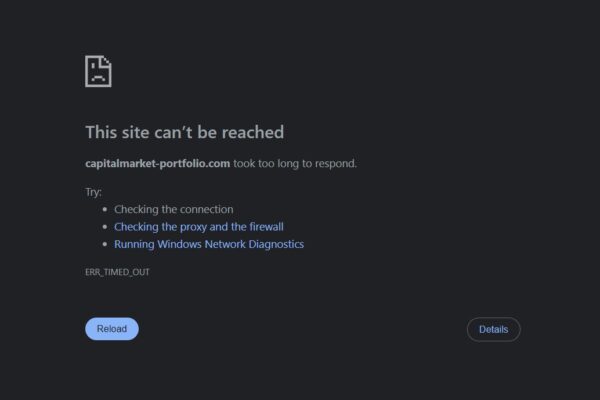Exopip.com Review –A Shady Investment Platform
In the ever-expanding world of online trading and digital investing, new platforms appear every month promising quick profits, smart automation, and the kind of returns that would make even seasoned investors raise an eyebrow. One name that has started circulating lately is Exopip.com. It advertises itself as a sophisticated trading platform offering lucrative opportunities in forex, crypto, and other digital assets. But behind the slick presentation and financial jargon, there’s an unsettling story—one that fits the all-too-familiar pattern of an online investment scam.
In this in-depth review, we’ll break down what Exopip.com claims to offer, the warning signs that point to fraudulent behavior, how victims are typically drawn in, and why you should think twice before sending a single cent to such operations.
The Lure of “Guaranteed Profits”
The first red flag on Exopip.com is the promise of guaranteed or extremely high returns.
On its website and promotional materials, the platform claims that users can earn consistent daily or weekly profits with minimal risk. Some of the marketing copy even suggests that professional traders or automated bots will “handle everything” for the user.
For experienced traders, these statements set off alarm bells immediately. In the world of legitimate investing, no one can guarantee profits—especially in volatile markets like forex and cryptocurrency. Real platforms emphasize risk disclosure and never promise fixed returns. Exopip.com, however, leans hard on emotional appeal, using phrases like “financial freedom,” “stable income,” and “fast withdrawals” to attract people who may be new to online trading.
A Slick Website with a Hollow Core
At first glance, Exopip.com looks professional enough. The design is modern, the layout is clean, and the site includes all the usual sections—about pages, FAQ, contact forms, and sometimes even testimonials. But a deeper look quickly exposes inconsistencies.
Many pages are filled with generic or recycled text, and there’s often little to no verifiable information about who owns or operates the company. The “About Us” section may mention a vague team of financial experts or global partners but offers no real names, credentials, or business registration details. This is a classic tactic used by online scammers to build false credibility without leaving a paper trail.
Often, scam platforms like this are white-label templates—meaning they’re cloned or slightly modified versions of other known scam websites. The operators change the name, logo, and color scheme, but the underlying scheme remains identical. Once one site gains a bad reputation or is flagged by regulators, they simply rebrand and launch again under a new domain.
The Fake Legitimacy Factor
To seem trustworthy, Exopip.com uses the illusion of regulation. Some versions of its marketing material mention registration with financial authorities or partnerships with regulated brokers. However, when checked against real registries, these claims usually turn out to be fabricated.
Scam brokers often invent fake license numbers or reference unrelated entities that have no connection to them. They rely on the fact that most potential investors won’t take the time to cross-check official records.
Another subtle trick is the use of random company addresses, often listed in countries with loose corporate registration rules. You might see an address in London, Cyprus, or Singapore, but a quick search reveals that no actual office or business exists there. Sometimes, the address belongs to a virtual office or coworking space rented by hundreds of unrelated entities.
Social Media and Paid Endorsements
A major part of Exopip.com’s marketing push comes from social media. The platform has been promoted by anonymous influencers or newly created accounts that post glowing testimonials, screenshots of supposed profits, and referral codes. These posts often use urgency and FOMO (fear of missing out) to pressure people into depositing quickly—phrases like “last chance,” “limited-time bonus,” or “join the winning team.”
Some of these endorsements appear on forums or comment threads, usually from users with no prior history. In many cases, these are paid or fake reviews, created by the same operators to inflate the platform’s image.
The psychology is simple: if potential victims see other people “earning money,” they’re more likely to invest themselves. Unfortunately, most of those screenshots of big returns are fabricated or taken from demo accounts with no real trading involved.
How Victims Are Trapped
Once a person registers on Exopip.com and makes an initial deposit—often as small as $100 or $250—they’re contacted by a “personal account manager” or “financial advisor.” This representative is usually extremely friendly, knowledgeable, and persuasive. Their job is to build trust and encourage larger deposits.
They might call regularly, explain how your account is “growing,” and even show fake dashboards with increasing profits. In some cases, they’ll let you withdraw a small amount at first to build confidence. But once you invest more, the problems begin.
Withdrawals are suddenly delayed or rejected due to “verification issues,” “system maintenance,” or “anti-money laundering checks.” Meanwhile, the platform keeps asking for more money—perhaps to “unlock” a premium account or “activate” withdrawal privileges.
Eventually, communication stops altogether. The website may go offline, the representative disappears, and your funds vanish into thin air. At that point, the realization sets in: you’ve been scammed.
The Psychological Playbook of Scam Brokers
Exopip.com, like many similar operations, relies not just on technical tricks but on psychological manipulation. The entire funnel is designed to exploit emotional triggers—greed, fear, trust, and hope.
-
Greed: The idea of fast, effortless returns appeals to anyone frustrated by slow traditional investments.
-
Fear of Missing Out: Limited-time offers and testimonials from “successful” investors create urgency.
-
Trust Building: Friendly support staff and small initial gains make victims believe it’s real.
-
Hope: Even after losses, scammers convince victims that another deposit will fix everything.
These emotional cues are powerful, and the operators behind such platforms are often skilled at social engineering. They use scripts, training, and psychological techniques to appear legitimate, professional, and even caring.
Warning Signs You Can’t Ignore
While Exopip.com may change its appearance over time, the core warning signs remain the same across these types of operations:
-
Unrealistic returns promised with no risk.
-
Anonymous ownership or unverifiable corporate details.
-
Pressure tactics to deposit quickly or upgrade accounts.
-
Unlicensed operations claiming false regulation.
-
Fake testimonials and staged social-media activity.
-
Difficult or blocked withdrawals.
-
Vanishing support once large sums are invested.
If even one of these appears on a trading platform, it’s worth pausing and investigating thoroughly. When multiple are present, it’s almost certainly a scam.
Why These Scams Keep Reappearing
You might wonder why platforms like Exopip.com keep popping up if they’re fraudulent. The answer lies in the ease of replication and low accountability in online finance. Setting up a new domain name, hosting a website, and promoting it on social media costs very little.
The operators often work in loosely organized networks, moving funds through crypto wallets or offshore accounts that are hard to trace. Once a domain is reported or shut down, they rebrand, reuse the same templates, and start again under a new name—sometimes even targeting the same victims with a new “opportunity.”
The anonymity of cryptocurrency transactions and the global nature of the internet make it difficult for authorities to catch or prosecute them quickly. That’s why education and public awareness are crucial—scammers thrive on ignorance and impulsive decisions.
The Emotional Fallout
Financial loss is only part of the damage caused by scams like Exopip.com. Many victims experience shame, anxiety, and mistrust afterward. They blame themselves for being naïve or reckless, even though these schemes are designed to deceive almost anyone.
The emotional manipulation, false relationships with “account managers,” and constant communication create a deep sense of betrayal once the truth comes out. Scammers exploit not just your money but your sense of confidence and dignity.
That emotional toll is why it’s important to understand that falling victim to a slick online scheme doesn’t mean you’re foolish—it means the scam was engineered with precision to make you believe it was safe.
Patterns That Connect Exopip.com to Other Scams
When researchers and online fraud trackers analyze Exopip.com, they often find connections to a broader web of related domains. These sites share the same page structure, writing style, and even customer-service chat windows.
This pattern suggests that Exopip.com isn’t an isolated case but part of a larger network of fraudulent investment websites. Each version may target different regions or audiences, sometimes focusing on crypto investors, sometimes on forex traders, and sometimes on general “wealth builders.”
In each iteration, the storyline remains the same: a cutting-edge trading platform, a professional support team, and the promise of simple, steady profit. It’s the digital equivalent of the old “too good to be true” sales pitch, modernized for the online age.
The Bigger Picture
The rise of scams like Exopip.com reflects a troubling reality in the online finance world. While technology has made investing more accessible, it has also opened the door to new forms of deception.
The combination of slick marketing, social proof, and global reach allows fraudsters to operate with minimal risk. Even when one site is exposed, another emerges within weeks, targeting a fresh wave of victims.
The lesson here isn’t that all online trading is bad—there are legitimate brokers and regulated investment platforms. The key is verifiability. Real businesses can prove who they are, who regulates them, and how your money is protected. Scams like Exopip.com can’t.
Final Thoughts
Exopip.com fits the textbook definition of an online investment scam. It uses professional-looking design, fake legitimacy, emotional manipulation, and aggressive marketing to lure unsuspecting individuals into depositing funds they’ll likely never see again.
Its business model relies on deception rather than trading expertise, and its operators hide behind anonymity and digital complexity.
In an age where financial independence and online income are hot topics, it’s easy to be tempted by promises of effortless profit. But the reality is simple: if a platform guarantees returns, hides its operators, or pressures you to invest fast—it’s not an opportunity; it’s a trap.
Report Exopip.com Scam and Recover Your Funds
If you have lost money to Exopip.com Scam, it’s important to take action immediately. Report the scam to Jayen-consulting.com, a trusted platform that assists victims in recovering their stolen funds. The sooner you act, the better your chances of reclaiming your money and holding these fraudsters accountable.
Scam brokers like Exopip.com continue to target unsuspecting investors. Stay informed, avoid unregulated platforms, and report scams to protect yourself and others from financial fraud.
Stay smart. Stay safe.






